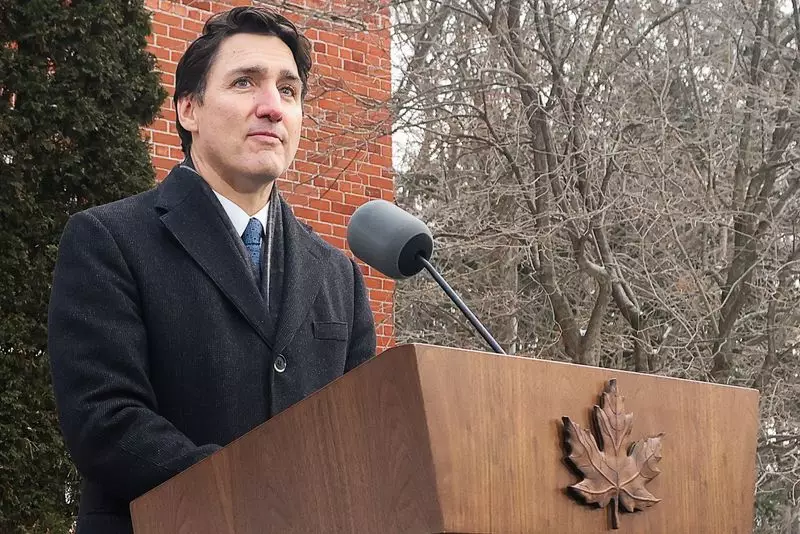As Canada stands on the precipice of potential economic turbulence due to threatened tariffs from the incoming U.S. administration, Prime Minister Justin Trudeau’s government is grappling with how to respond effectively. With U.S. President-elect Donald Trump threatening a substantial 25% import tariff on Canadian goods, the stakes have never been higher. Economists warn that such tariffs could plunge Canada into a severe recession, given that a staggering 75% of Canadian exports are directed towards the U.S. This situation necessitates a strategic and united front from Canada.
In response to these economic threats, Trudeau plans to convene a cabinet retreat focused on solidifying Canada’s stance and optimizing its trade relations. The objective, as stated by his office, is to protect and advocate for Canadian interests while reinforcing the importance of the symbiotic trade and security relationship shared with the United States. This cabinet meeting, set to occur shortly after Trump’s inauguration, serves as a critical opportunity for Trudeau to unify his government’s approach amidst growing provincial dissent.
However, not everyone within Canada is on board with the federal leadership’s proposed strategies. The premiers of various provinces have expressed concerns regarding a perceived lack of decisive action from the Trudeau administration. Ontario Premier Doug Ford has publicly criticized the federal government, emphasizing that failure to devise a coherent policy could jeopardize up to 500,000 jobs in Ontario alone. His assertion underscores a larger sentiment among provincial leaders: the necessity for a cohesive, collective response to the impending threat, rather than a fragmented approach.
Among discussions on countermeasures, Foreign Minister Melanie Joly has suggested that Canada is open to restricting energy exports to the U.S. However, this proposition has faced backlash, particularly from Alberta Premier Danielle Smith, who argues that such actions could provoke a national crisis of unity. Smith’s stance highlights the delicate balance Canadian leaders must navigate: protecting provincial economic interests while fostering national solidarity in the face of external threats.
The upcoming cabinet retreat is not merely about formulating a response to tariffs; it is an opportunity to reinforce national identity and resilience. As Trump embarks on his presidency, known for his unpredictable policies regarding trade and nationalism, Canada’s leaders must prepare for a variety of possible scenarios. With a robust border-security plan recently unveiled, Canada appears poised to take assertive measures to safeguard its economic and security interests. In these uncertain times, the importance of unity within Canada cannot be overstated; the nation must come together to face external challenges without fracturing its internal relationships.
As Canada braces itself for the potential economic storm brought on by U.S. tariffs, the necessity for a united front becomes paramount. Trudeau’s leadership will be put to the test as he seeks to balance provincial interests with national priorities. The decisions made in the coming weeks will not only shape Canada’s economic future but also its international standing in an increasingly protectionist world. Ultimately, the resilience and cohesion of Canada will dictate the outcome of this challenging chapter in the nation’s history.

